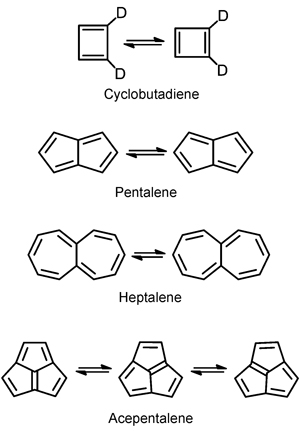Written by Jennifer Newton for Chemistry World
A new theoretical study of anti-aromatic systems has attributed the unusual way that their π-bonds shift to quantum tunnelling. These intriguing findings suggest that even though heavy atom tunnelling is rare, its effect is far from negligible.
Quantum-mechanical tunnelling is a process by which a particle can cross a potential barrier without having enough energy to go over it. It is a completely quantum effect based on the wave nature of the particle and is connected to the de Broglie wavelength, which gets shorter as the mass of the particle gets higher. Therefore, only the lightest particles can tunnel, and in chemistry it means that it is almost impossible for anything but hydrogen. Or that is what we were taught at university . . . .
Interested in learning more? Read the full story at Chemistry World











